OBAMA-BIDENOMICS IS TRICKLE UP ECONOMICS FOR THEIR
CRONIES WHO KICK BACK SOME TO THE
LYING LAWYERS WHO ABETTED THEM
BEZOSHEAD = FUCKING HOG!
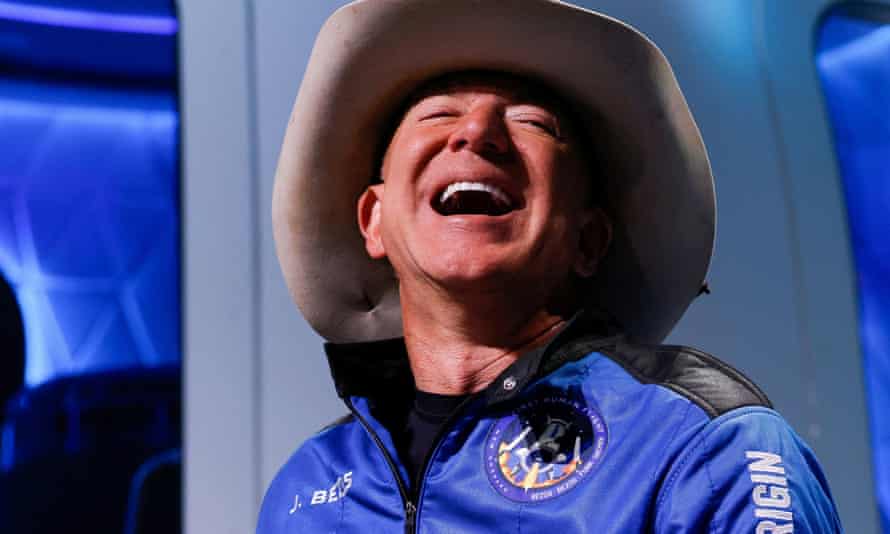
THE ECONOMIC OUTLOOK JUST GOT DARKER, LABOR FORCE VANISHING, DIRE PRICE INCREASES WILL CONTINUE
Rigged: Investigation Finds Amazon Brands and Exclusives Hold Top Spot in 7 Out of 10 Product Searches
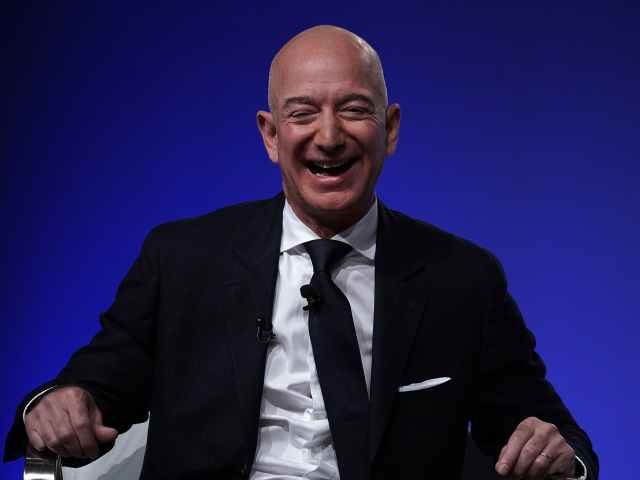
According to a recent report, e-commerce giant Amazon purposefully ranks its own products above other higher-rated competitors on its platform. According to an investigation by the Markup, “We found that knowing only whether a product was an Amazon brand or exclusive could predict in seven out of every 10 cases whether Amazon would place it first in search results.”
Breitbart News recently reported that according to internal documents, e-commerce giant Amazon has been developing knockoff products and manipulating search results to promote its own product lines. Documents show that the company’s private-brands team in India exploited internal data obtained from its marketplace in the country to identify popular products sold by other companies and then create copies to compete against them.
Now, the Markup reports that Amazon sellers in the United States are describing similar experiences. The Markup spoke to Robert Gomez, the founder of the Atlanta-based consumer goods startup 4Q Brands and the owner of the Kaffe coffee grinder brand. Gomez claimed that after refining photos and descriptions of his coffee grinder, amazing positive reviews, and paying the e-commerce giant $40,000 a month in advertising, his product finally became top-ranked on Amazon’s platform.
However, Amazon then introduced its own competing coffee grinders from its house brand Amazon Basics and another from a brand that sells exclusively on Amazon, DR Mills. Gomez stated that the items from the other brands ranked well immediately, appearing amount the top-three results for “coffee grinder” on the platform. Gomez stated: “Their search ranking is high because they’re an Amazon brand.” In fact, an investigation by the Markup found that Amazon brands and exclusives held the top spot in seven out of ten product searches.
The Markup writes:
An investigation by The Markup found that Amazon places products from its house brands and products exclusive to the site ahead of those from competitors—even competitors with higher customer ratings and more sales, judging from the volume of reviews.
We found that knowing only whether a product was an Amazon brand or exclusive could predict in seven out of every 10 cases whether Amazon would place it first in search results. These listings are not visibly marked as “sponsored” and they are part of a grid that Amazon identifies as “search results” in the site’s source code. (We only analyzed products in that grid, ignoring modules that are strictly for advertising.)
…
The Markup found Amazon placed its Happy Belly Cinnamon Crunch cereal, with four stars and 1,010 reviews, in the number one spot ahead of cereals with better and more reviews including Cap’n Crunch (five stars, 14,069 reviews), Honey Bunches of Oats (five stars, 5,205 reviews), and Honey Nut Cheerios (five stars, 11,702 reviews). A vacuum cleaner from Amazon’s exclusive Noisz brand was placed on top, ahead of models from Bissell, Eureka, and Hoover with higher ratings and more reviews. And the Amazon-exclusive Concept 3sneaker from Skechers placed number one, four spots ahead of a similar but not exclusive to Amazon Skechers sneaker with the same star rating but 77 times more reviews.
The Markup’s investigation found that Amazon-branded products overall receive an outsized portion of top spots in search results, completely out of line with their proportion of the sample.
Read more at the Markup here.
Lucas Nolan is a reporter for Breitbart News covering issues of free speech and online censorship. Follow him on Twitter @LucasNolan or contact via secure email at the address lucasnolan@protonmail.com
Indian Retailers Demand Investigation of Amazon Market-Rigging Scandal
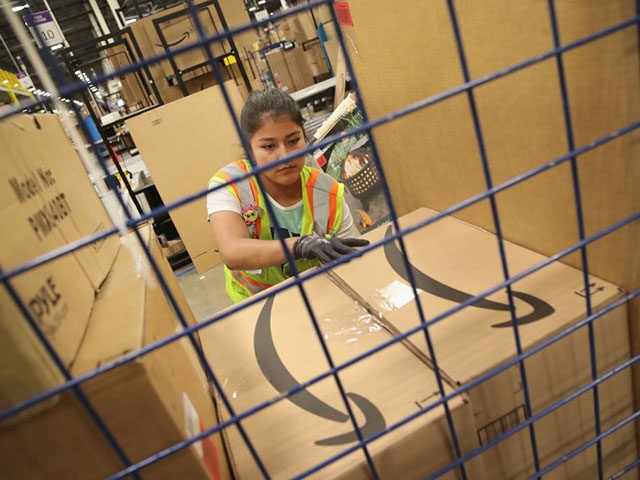
A group representing millions of Indian retailers on Thursday demanded a government investigation of Amazon.com following a Reuters report that accused the online retail behemoth of manipulating search results to privilege its own knockoff brands over Indian retail merchandise.
“Amazon is causing a great disadvantage to the small manufacturers. They are eating the cake that is not meant for them,” Praveen Khandelwal of the Confederation of All India Traders told Reuters on Thursday.
Reuters quoted an Indian official calling for a nationwide boycott of Amazon, and a fiery blog post from a nonprofit called the Alliance of Digital India Foundation (ADIF) that said Amazon’s behavior was “highly deplorable and brings into question the credibility of Amazon as a good faith operator in the Indian startup ecosystem.”
The report that prompted these outraged reactions accused Amazon of creating knockoffs of Indian products, then manipulating its search results so customers saw the knockoffs as featured products before seeing the original items.
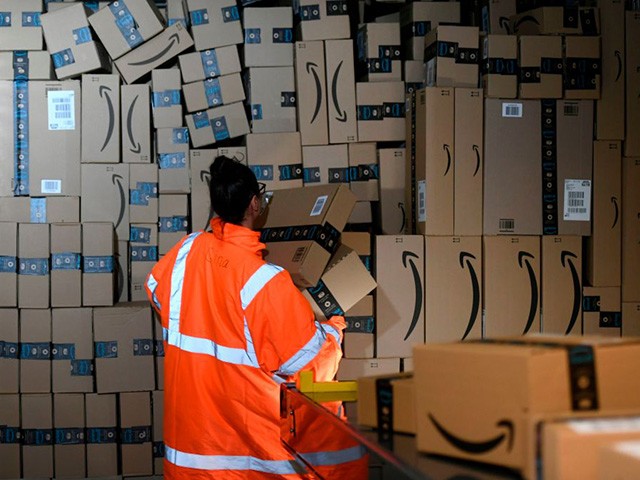
An employee places packed goods tons container at the distribution center of US online retail giant Amazon in Moenchengladbach, Germany, on December 17, 2019. (Ina Fassbender/AFP via Getty Images)
CNBC explained that Amazon does not take the crude and obvious tactic of making its own branded products appearing first in search results; instead, it allegedly uses “search seeding” tactics to ensure its products appear near the top, then calls consumer attention to them with “sparkles” or on-screen banners.
Amazon has been accused of doing this sort of thing in other markets, but Reuters reviewed “thousands of pages of internal Amazon documents” that described a vast and meticulously-planned campaign to muscle Indian retailers out of their own market, which happens to be one of Amazon’s biggest growth opportunities:
Among the victims of the strategy: a popular shirt brand in India, John Miller, which is owned by a company whose chief executive is Kishore Biyani, known as the country’s “retail king.” Amazon decided to “follow the measurements of” John Miller shirts down to the neck circumference and sleeve length, the document states.
The internal documents also show that Amazon employees studied proprietary data about other brands on Amazon.in, including detailed information about customer returns. The aim: to identify and target goods – described as “reference” or “benchmark” products – and “replicate” them. As part of that effort, the 2016 internal report laid out Amazon’s strategy for a brand the company originally created for the Indian market called “Solimo.” The Solimo strategy, it said, was simple: “use information from Amazon.in to develop products and then leverage the Amazon.in platform to market these products to our customers.”
The Solimo project in India has had international impact: Scores of Solimo-branded health and household products are now offered for sale on Amazon’s U.S. website, Amazon.com.
One of the Amazon documents referred to the expertise of original manufacturers – which Amazon’s “partnership” employees were allegedly sent to study and duplicate – as “tribal knowledge.”
Reuters said the Amazon documents laid out a “formal, clandestine strategy” to imitate Indian retail products and manipulate search results. These are both activities that Amazon executives – including founder Jeff Bezos – have repeatedly sworn to Congress under oath that the company would never engage in.
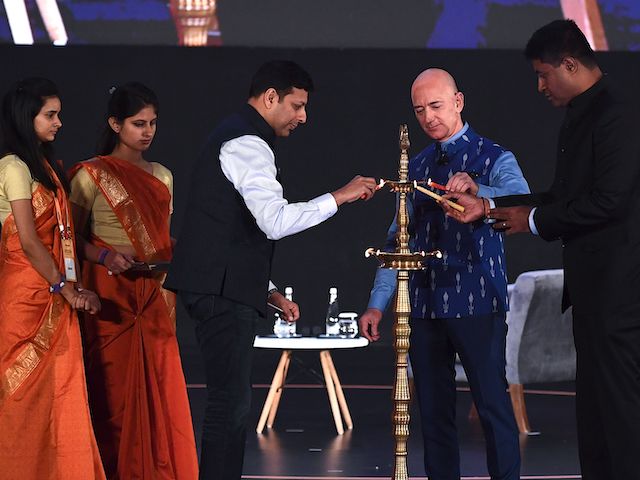
CEO of Amazon Jeff Bezos (R) lights a traditional lamp along with Amit Agarwal (3L), senior vice president and country manager for Amazon India, during Amazon’s annual Smbhav event in New Delhi on January 15, 2020. (Photo by Sajjad Hussain/AFP via Getty Images)
Bezos specifically stated in July 2020 that Amazon has “a policy against using seller-specific data to aid our private label business,” but added that he could not “guarantee that policy has never been violated.” The Reuters expose suggested it was violated with gusto in India by some fairly high-level Amazon personnel.
“It’s worth noting that Amazon has on multiple occasions, including during formal hearings, denied any wrongdoing that involves making use of consumer data to drive advantage for its own brands and products,” the ADIF said in its blog post on Thursday:
Amazon taking advantage of consumer data that they are in possession of, using that information to the detriment of the brands and sellers that helped generate the data in the first place, and then rigging search results to further hurt the original brands is an economic offence of the highest order, one that has destructive consequences for markets and falls foul of fair competition practices.
“The unfiltered insight the documents offer into Amazon’s aggressive use of its market power could intensify the legal and regulatory pressure the company is facing in many countries,” Reuters predicted.
Sen. Elizabeth Warren (D-MA) quickly responded to the Reuters report by demanding the breakup of Amazon:
The Economic Times noted that even before the Reuters expose was published, some Hindu media outlets were comparing Amazon to the East India Company – the corporate supervillains of the British colonial era – while a whistleblower accused Amazon of bribing Indian officials.
The Economic Times suggested Amazon could be attacked from several quarters of Indian politics because the Diwali holiday season is coming up, the Wuhan coronavirus pandemic is receding, and the battle for Indian consumer spending will likely be fierce. Furthermore, there is considerable anxiety in India about foreign companies seeking to destabilize the economy.
When Reuters invited Amazon to respond to its story on Wednesday, the company replied that it could not “confirm the veracity” of the documents Reuters obtained but said it believed the allegations in the report were “factually incorrect and unsubstantiated,” without explaining why.
Amazon insisted to Reuters that it displays its search results “based on relevance to the customer’s search query, irrespective of whether such products have private brands offered by sellers or not.”
Amazon’s response also repeated Bezos’ assertion that company policy “strictly prohibits the use or sharing of non-public, seller-specific data for the benefit of any seller, including sellers of private brands.”
BEZOSHEAD CAN'T MAKE AN HONEST PROFIT. LIKE JOE BIDEN, HE HAS TO STEAL IT!

Report: Amazon Internal Documents Show Company Copied Popular Products, Rigged Search Results
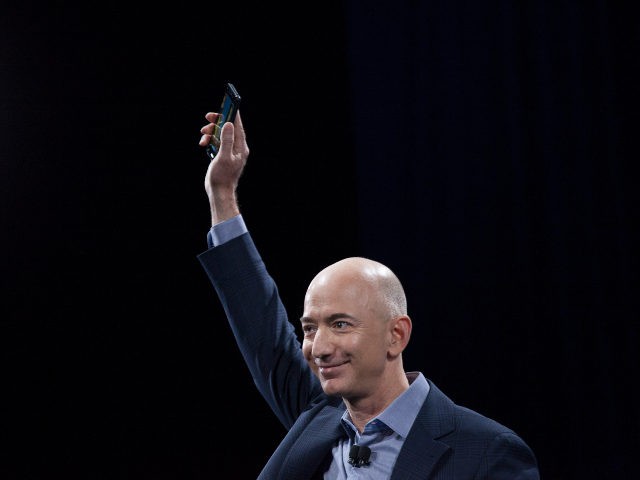
A recent report claims that internal Amazon documents show that the company created knockoff items and manipulated search results to promote its own product lines in India.
Reuters reports that according to internal documents, e-commerce giant Amazon has been developing knockoff products and manipulating search results to promote its own product lines. Reuters reports that the documents show that Amazon’s private-brands team in India exploited internal data obtained from its marketplace in the country to identify popular products sold by other companies and then create copies to compete against them.
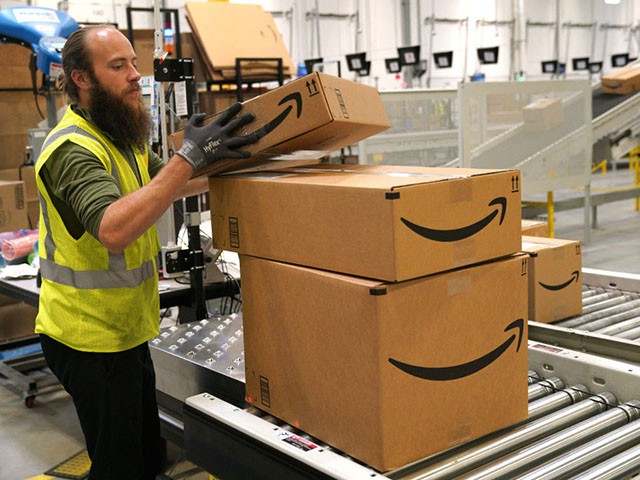
AURORA, CO – MAY 03: A worker moves packed boxes at the Amazon fullfillment center May 3, 2018 in Aurora, Colorado. The million square foot facility, employing 1,000 fulltime employees, has over 2 million products ready to ship to customers globally. (Photo by Rick T. Wilking/Getty Images)
The private-brand team also reportedly altered Amazon’s search results so that Amazon-owned brands would appear “in the first 2 or three … search results” according to a strategy report from 2016. Some of the brands that were copied including the popular shirt brand John Miller, which is owned by a company whose CEO Kishore Biyani is known as India’s “retail king.”
Amazon reportedly chose to “follow the measurements” of John Miller shirts down to the exact neck circumference and sleeve length, essentially creating Amazon-branded copies.
Internal documents show that Amazon employees studied proprietary data from other brands on Amazon.in with the aim of identifying and targeting goods that could be used as a “reference” or “benchmark” products that Amazon could “replicate.”
This is far from the first time Amazon has been accused of similar practices. In 2020, Breitbart News reported that the e-commerce giant set up meetings with startup firms to discuss their products with the pretense of potentially investing in the companies, only later to launch competing products in similar markets.
In April of 2020 Amazon was accused of doing exactly what the latest documents from Reuters appear to show, that the company was using data and sales figures to target products sold by third parties and then creating their own versions.
Read more at Reuters here.
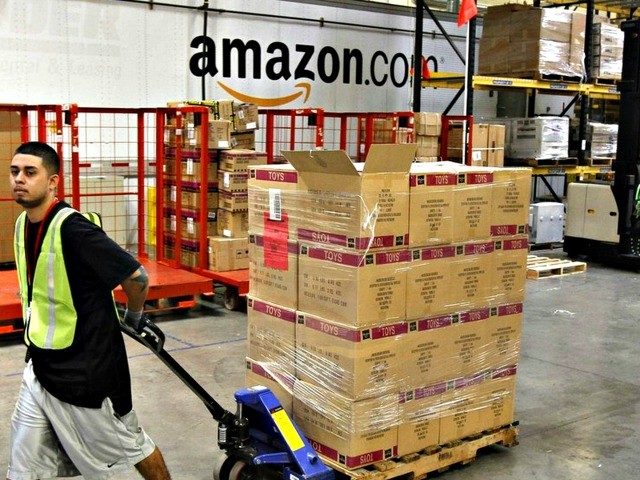
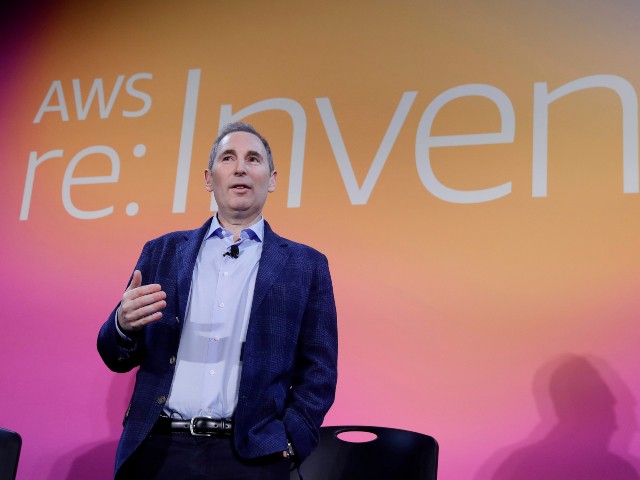
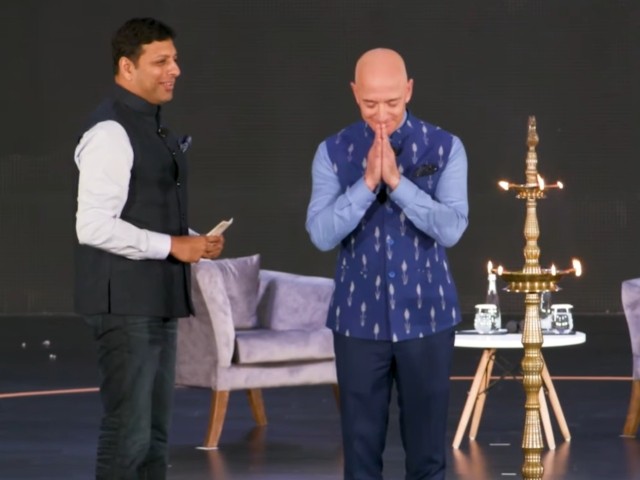
No comments:
Post a Comment